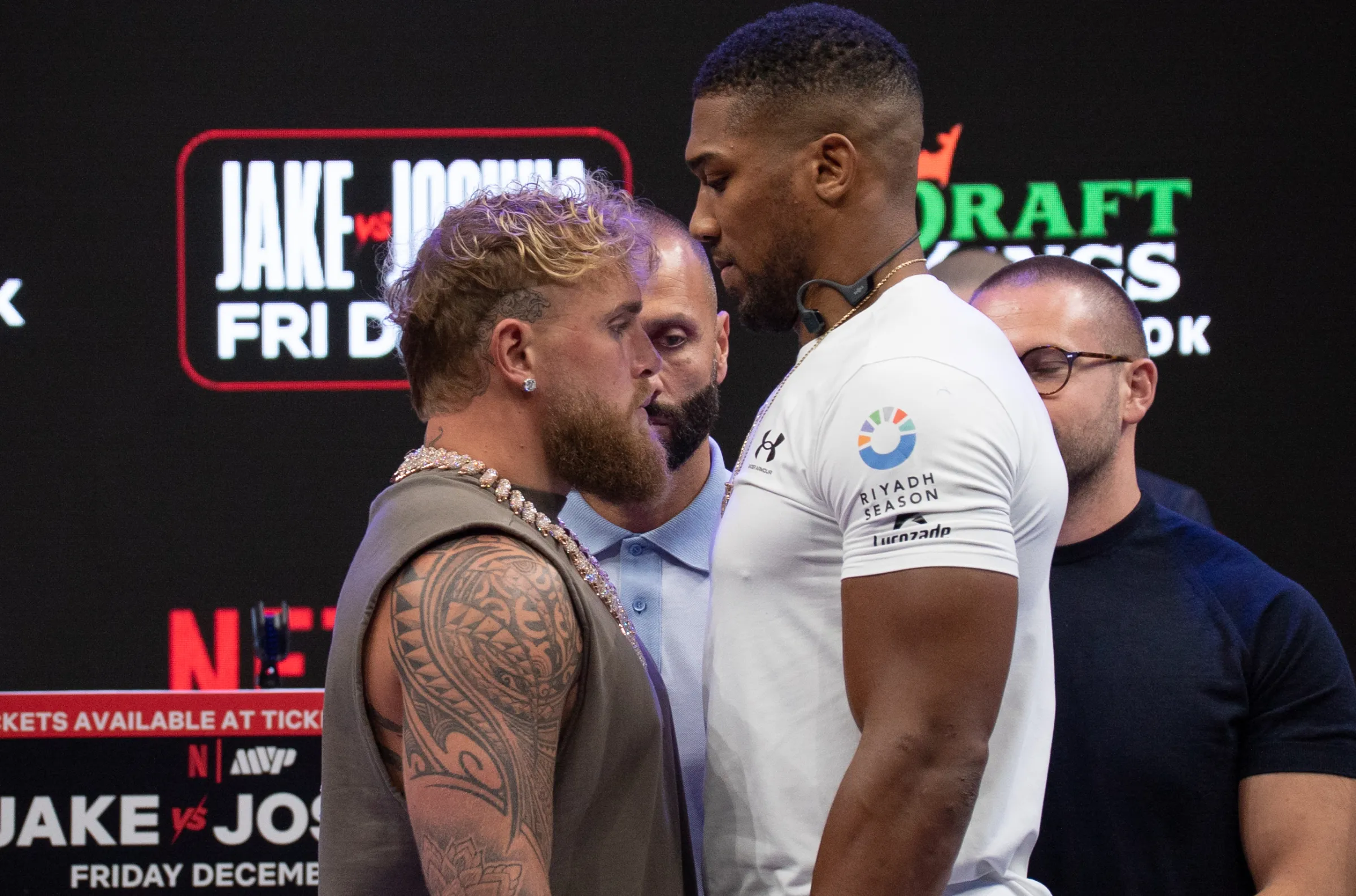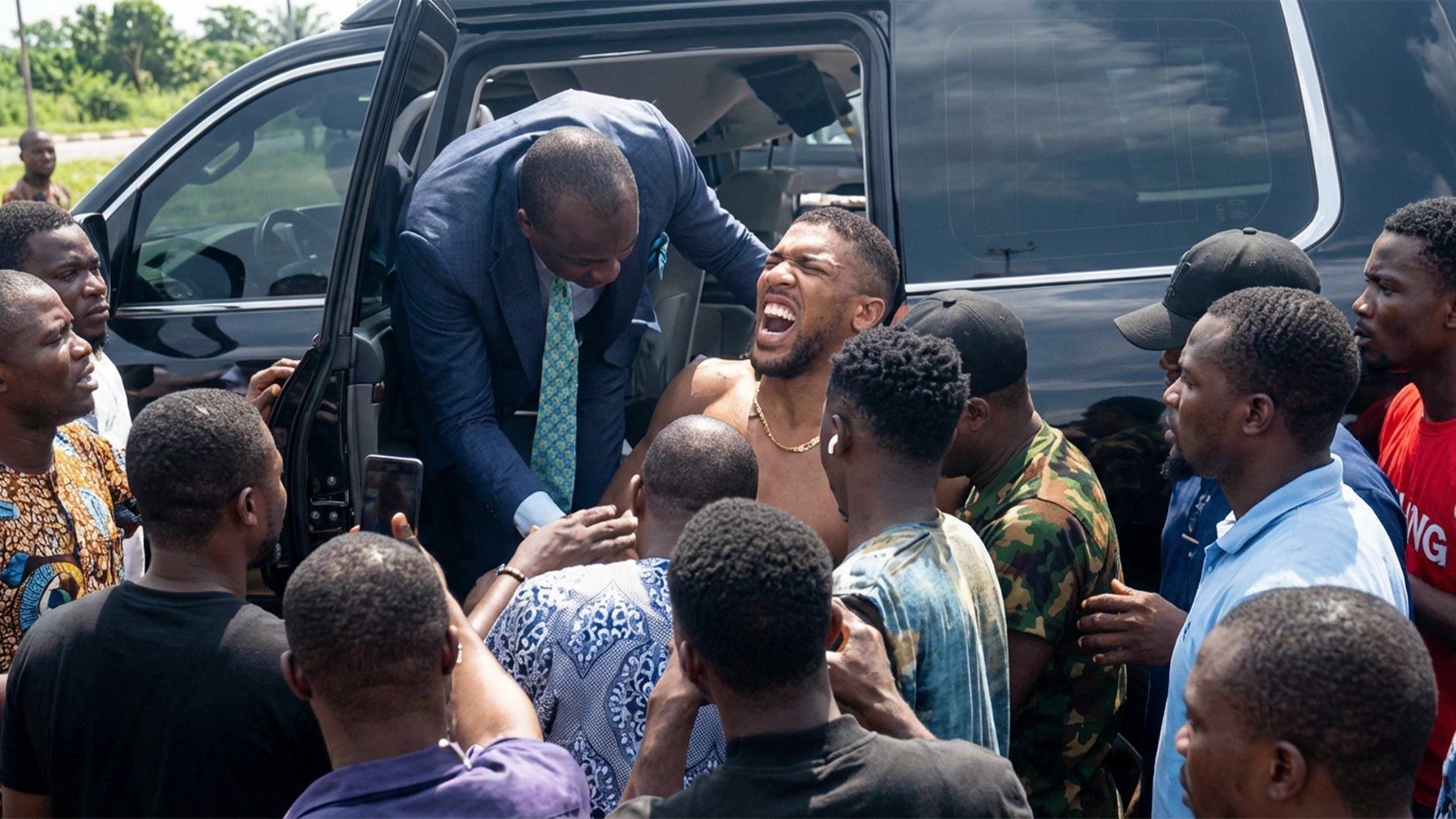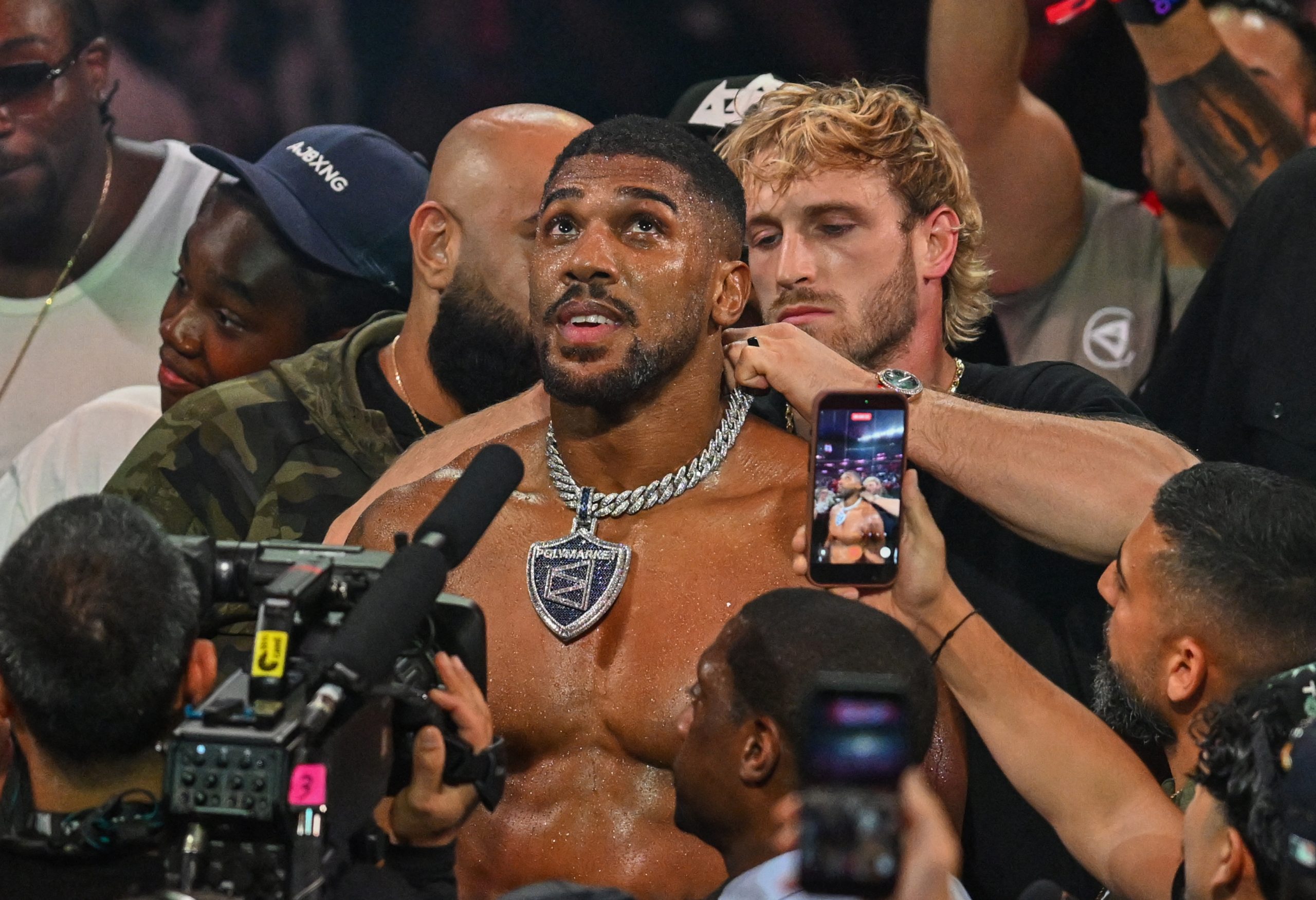 On September 30, 2021, the world’s attention was focused on the Tottenham Stadium, London, where Nigerian-born British former World Heavyweight Champion, Anthony Joshua, tried, but failed to defend his titles against Ukrainian fighter, Olexsander Usyk.
On September 30, 2021, the world’s attention was focused on the Tottenham Stadium, London, where Nigerian-born British former World Heavyweight Champion, Anthony Joshua, tried, but failed to defend his titles against Ukrainian fighter, Olexsander Usyk.
The fight was supposed to be a prelude to the biggest grossing heavyweight title fight in recent times, involving Joshua and British boxer, Tyson Fury.
However, Joshua’s unexpected loss to Usyk scuttled that dream. Like other boxing followers, Nigerians followed the Joshua versus Usyk fight round for round because of its implications to the world heavyweight boxing class. Although Joshua lost his belts, there are many who still believe that AJ, as he is fondly called, has the talent to reclaim his titles and move on to the Fury challenge.
Joshua’s fight with Usyk, to Nigerians, was supposed to be another opportunity to celebrate ‘our son,’ who is doing well in a field the country was once reputed as one of the best in the world.
Joshua, a British Olympics gold medallist, had given Nigerian boxing followers the assurance that with the right environment, the country’s boxers could excel and rule the world like they did in the 1960s up to 1990s, when such fighters as Dick ‘Tiger’ Ihetu, Hogan Bassey, Obisia Nwankpa, Ngozika Ekwelum, Davidson Andeh, Tony Andeh, Billy Famous, Hogan Jimoh, Dele Jonathan and Joe Lasisi, among others, ruled their weight categories.
In recent times, some other Nigerian boxers or boxers of Nigerian heritage have been making waves in the global circuit. Such talented stars as Joshua (former world Heavyweight champion), Lawrence Okolie (cruiserweight), Efe Ajagba (heavyweight), Efe Apochi (cruiserweight) and Raphael Igbokwe (middleweight) are among the highest ranked boxers in their different weight categories.
The reality, however, is that Nigerian boxing, which was once as popular as football among the country’s sports fans, has lost its appeal such that a country that once boasted world and African champions in different weight categories, no longer has home-based fighters of note in the major ranking bodies.
The fall is further compounded by the little or no efforts by stakeholders to arrest the situation.
The fall in Nigerian boxing has been happening slowly but gradually.
At the amateur level from which professional boxers grow, the country has fallen so low that it is now no longer among the top nations in Africa. Boxing gave Nigeria its first Olympic Games medal when Nojeem Maiyegun won a light middleweight bronze medal at the Tokyo 1964 games. In fact, boxing accounts for six of Nigeria’s 25 medals at the Olympics. These are made up of three silver medals won by Peter Konyegwachie (1984), David Izonritei and Richard Igbenegbu (1992) and three bronze medals won by Nojeem Maiyegun (1964), Isaac Ikhuoria (1972) and Duncan Dokiwari (1996) respectively.
The current reality in Nigeria is that boxing, which was once as popular as football among the country’s sports fans, has fallen so low that its boxers no longer qualify for major championships. Where as the country had only one boxer at the Rio 2016 Olympic Games, the country could not produce any for the 2020 Games held in Japan.
So, what has happened to Nigerian boxing such that the country now plays second fiddle to South Africa, Ghana, Kenya and Tanzania in Africa?
One of the forces behind the programme to resuscitate boxing in Nigeria, Jenkins Alumona, agrees that the sport is almost at its lowest ebb. He adds, however, it “is bouncing back after decades, during which the sport lost relevance and almost died, if you observe its trajectory since 2014 when the intervention of GOtv, via GOtv Boxing Night and later GOtv NextGen Search began.”
According to Alumona, who is the chairman of Lagos Boxing Association, “the sport suffered from the conspiracy between dire organisation and poor financing. These two factors are responsible for the drying up of boxing promotions, resulting in very limited opportunities for boxers to show their abilities in a competitive environment and grow into elite-level sportsmen and women.
“Poor organisation, particularly at the institutional level, also meant that facilities for development were in short supply. The dip in promotions meant boxers had to wait for upwards of four years in between fights. We both know that there is no way they can develop if they do not experience competition.”
Alumona revealed that many good amateur boxers are reluctant to turn professional because of lack of opportunities for paid fighters in Nigeria.
He explained: “They did not see the path to growth. They also did not see an opportunity to be better remunerated and, therefore, chose to remain at the amateur level. They saw previous boxing heroes wallowing in penury and told themselves that they didn’t want to be like them.
“What this did, sadly, was to ensure that two to three generations of talented amateur boxers aged almost all at once and denied the country a rich pool of talents that would have flown her flag on the global stage. We are still suffering from that.”
Veteran journalist, Effiong Nyong, blames the poor state of Nigerian boxing on societal and economic malaise that has bedevilled the country since the turn of the century.
According to Nyong, Nigerian boxing, like every other aspect of life in the country, has also taken a heavy bashing.
“The factors responsible for this fall are many, but poor administration of sports in the country ranks tops; and in recent years, too much of politics has been the bane of boxing.
“The scrapping of the National Sports Commission by the sports ministry is another factor, following the inability of the National Assembly to pass an enabling law to justify the existence of the national sports commission.
“This has left sports administration to the whims and caprices of whoever the sports minister is. This same scenario plays out at the state level where there are constant conflicts between sports commissioners and the chairmen of the various state sports commissions.
“In Nigeria today, everything is politics and politics is everything. Political considerations come first before anything else. It determines how much is allocated to a particular sector and in this regard, sports.
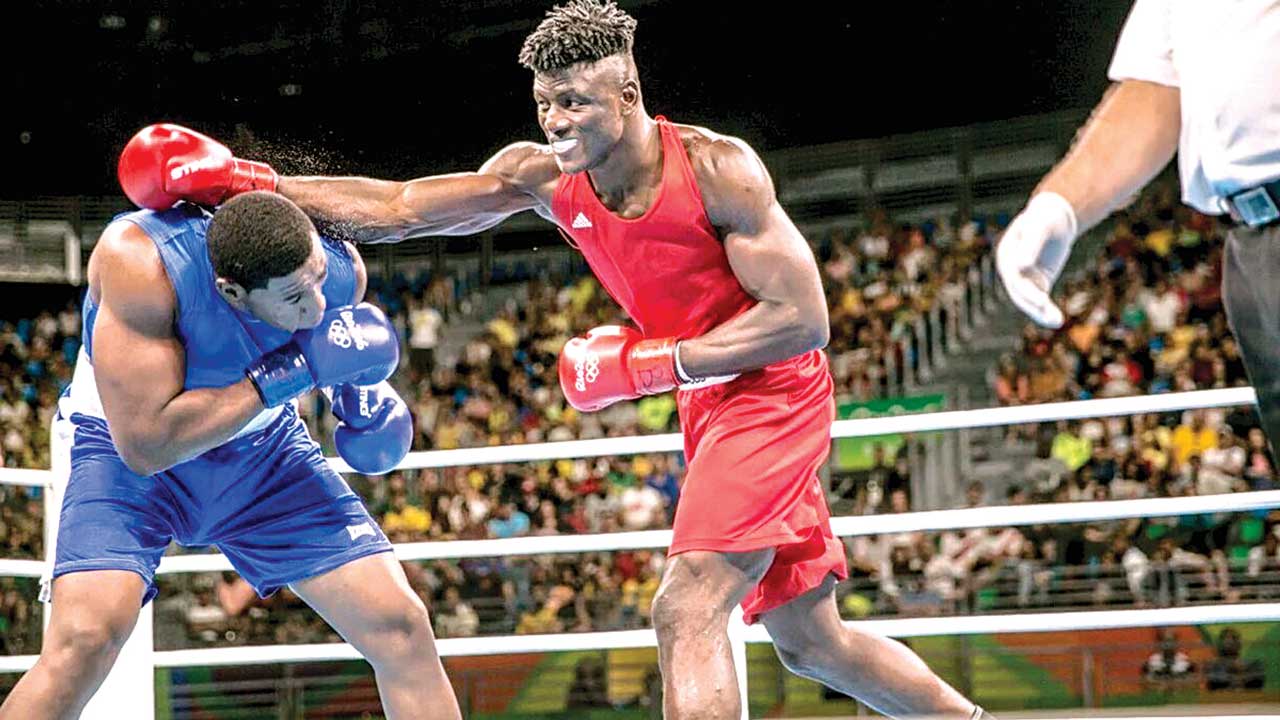
“The choice of who manages sports is also determined by politics, what party and what camp a person belongs are more important than merit. This is why a failed coach is chosen ahead of his contemporaries.”
He also blames football’s popularity for boxing’s predicament, arguing that most governments in the country favour football over other sports.
“And boxing belongs to the other sports. In the years that Nigeria made waves in boxing, the administrators knew the importance of the sport and were properly educated in the art.
“Those in charge knew where to go in search of talents; they motivated their wards towards their goals… it is different from what is happening today.”
He also highlighted the roles of government bodies and corporate organisations to the growth of boxing and other sports in the past.
According to Nyong, “Corporate social responsibility was practical with most government agencies leading the way.
“Corporations such as the railways, airways, ports authority, prisons services owned and maintained sports departments that promoted sports.
“The school system, especially the mission schools, also contributed immensely to the growth of sports and sportsmen in different areas, boxing inclusive.
“Schools had clubs where amateur boxing had its roots. Today, the story is different. Amateur boxing is the cradle of boxing development and when that fails, there is no way boxing can grow. In fact, that is why professional boxing is lagging behind, as boxers are not coming through the ranks. This scenario shows that there is no foundation for growth.”
Nyong listed poor facilities and low morale for youth’s apathy to boxing as a profession, adding, “The few boxers from clubs are not well equipped. In the past, boxers came from various clubs across the country and had dedicated trainers; but with the dwindling economy, not many stakeholders are able to stay the course.
“When you weigh this side by side with what is happening in other countries like Ghana and South Africa, one can understand why boxing is not growing.”
Secretary of the Nigeria Boxing Federation, Laguda Babatunde, argues that the problems of boxing cuts across the other sports, adding that it is only noticeable in boxing now that the country can no longer provide fighters for international competitions.
Laguda, who is also a boxing coach, said the country’s representatives in international boxing were locally sourced until poor economy drove budding stars off the sport.
According top Laguda, “the Nigerian situation has become so poor that we no longer travel for international competitions. It is compounded by lack of developmental programmes to raise stars from the grassroots.
“The Nigerian system is responsible for this state of things. Corporate bodies no longer support boxing and unlike in the days of our glory, there are no more private individuals enthusiastic enough to support the sport.
“Until we sit down to look at the sport holistically, we will continue to play second fiddle to smaller countries in Africa.”
Former Commonwealth champion, Obisia, blames weak administration and lack of opportunities for budding fighters for the poor state of boxing in the country.
Obisia, who in the 1980s was the world’s second best welterweight boxer, said Nigeria has for a long time placed wrong people in the administration of boxing, adding that the situation has led to unqualified coaches leading the country’s boxing.
Pointing at inadequate planning, poor funding and the absence of trained coaches as among the problems dogging boxing, Obisia said: “You don’t elevate amateur boxers to become coaches overnight and expect them to achieve anything meaningful at an international championship like the Commonwealth Games.
“No matter how good a boxer is, he can never function as a coach except he is trained for that task.”
He said boxing administrators failed to plan ahead. “The normal thing to do is to organise open screening or a national championship from where boxers are picked. Camp the selected boxers and go on training tours before they travel to the games.
“We have not been doing these. Instead, boxers are handpicked for important assignments, such as Olympics’ qualifiers. They will fail.”
He called on the Minister of Youth and Sports Development, Sunday Dare and President Mohammadu Buhari to arrest the situation by providing the enabling environment and necessary funding for the sport to thrive in the country.
National team coach, Anthony Konyegwachie, who is the last Nigerian trainer to take a boxer to the Olympics, believes government’s apathy to the sport is its major problem.
Konyegwachie, who was able to take only one fighter, Efe Ajagba, to the Rio 2016 Olympics, said he would have been able to take up to four boxers to the 2020 Games in Japan if the boxing team was sponsored to qualifiers.
“What we lack is sponsorship. When we come to competitions, we don’t have money. The minister is really trying, but I think those in the sports ministry are not pursuing the files early.
“We missed the Olympics qualifiers… we didn’t attend them because money was not released for them. When the authorities say they have no money, there is nothing anyone can do.
“The Nigeria Boxing Federation’s president, General Kenneth Minimah, has been trying, using his personal resources to push the sport, but there is a limit to what an individual can do. We need the government to treat boxing the same way it treats football. We also want private sector players to help boxing to recapture its place in the Nigerian sports.”
Proffering solutions to the problems dogging boxing in Nigeria, Alumona said the sport could only rise again when stakeholders join forces in developing it.
The promoter, whose GOtv Boxing Night has been at the forefront of efforts to resuscitate boxing in Nigeria, picks the impact the project has had on the sport in the last seven years as evidence that boxing will thrive when practitioners are given opportunity to develop their talents.
“We have been giving boxers opportunities to test themselves against local and foreign opponents at different editions of GOtv Boxing Night.
“What that has done is to provide them with exposure to local and international promoters. Rilwan ‘Baby Face’ Babatunde recently fought for a WBO title in the Ukraine. He is a product of GOtv Boxing NextGen Search. Olaide ‘Fijaborn’ Fijabi recently fought in Dubai. He is also a product of GOtv’s intervention and has won national, West African and African Boxing Union titles on the bill of GOtv Boxing Night.
“Ehwarieme Onoriode, another GOtv Boxing Night ‘creation,’ has fought in Argentina and the U.S. The event is shown live on SuperSport in 50 African countries and provides a platform for exposure.
“In addition, there is more encouragement. They are considerably better remunerated, don’t get into the ring without insurance, unlike in the past; and the introduction of the Mojisola Ogunsanya Memorial Prize for the best boxer has raised performance. Winners have taken home between N1 million and N3 million.
“GOtv Boxing Night has staged many important fights, including five ABU title fights, a Commonwealth (Africa) title fight, three World Boxing Federation title fights and numerous national title fights. The international title bouts, naturally, give Nigerian boxing and boxers exposure.”
Alumona also said that when boxers get opportunities to test themselves against foreign opponents, it makes them better. “We have had boxers from Argentina, U.S., Egypt, Burkina Faso, Tanzania, Uganda, Kenya, Ghana, Togo and the Republic of Benin fight at GOtv Boxing Night,” he added.
Alumona believes that more people will take to boxing if they are provided with the basic equipment for the sport.
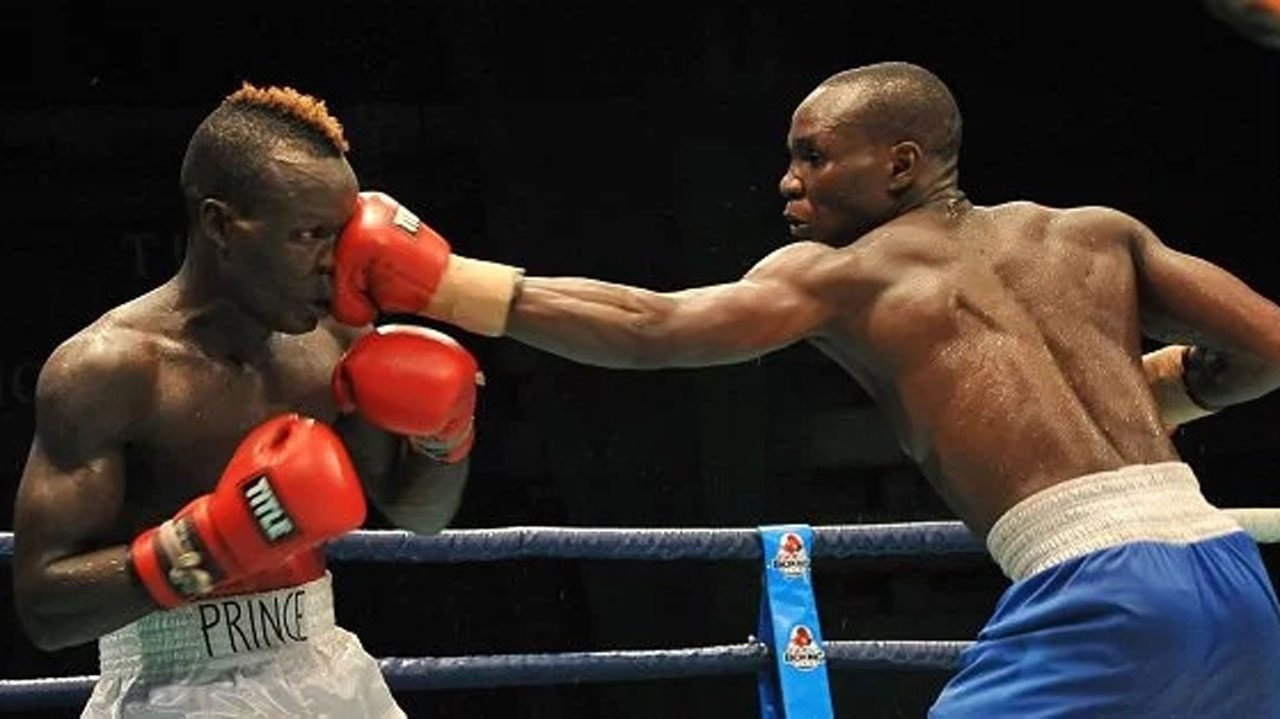
He said, “One of the major challenges is lack of training facilities. The corporate sector is reluctant to invest in boxing.
“GOtv Boxing Night has made efforts to deal with the first by acquiring a building and equipping it with modern boxing equipment. It is called the Mojisola Ogunsanya Memorial Boxing Gym and it is located in Lagos.
“It is a camp, which we hope will become a hothouse for boxing talents. The other is out of the hands of GOtv and GOtv Boxing Night. We can only appeal to the corporate sector to join GOtv in the bid to get Nigerian boxing to higher heights. Doing so requires finance, which is beyond only one sponsor.”
He urged companies to invest in development schemes similar to GOtv Boxing NextGen Search, provide facilities and bankroll promotions, adding, “We’d move faster if this happened.”
Alumona disagrees with the suggestion that Nigeria no longer produces good amateur boxers.
He said: “I think we still do and I am speaking as someone involved at that level through GOtv Boxing NextGen Search and as chairman of the Lagos State Boxing Association.
“However, the brilliant ones are stunted by lack of facilities and, I have to say, a low level of boxing education required to give wings to their undoubted talents.”
He advocates a structured way of training coaches, saying, “We currently do not have many adequately trained coaches, who can polish, very well, the talents available.
“Last year, GOtv Boxing wanted to hold a coaching clinic to be handled by a certified foreign boxing trainer. COVID-19, however, intervened. We haven’t given up on that, though.”
To Laguda, the sport will rise again only when the stakeholders decide to come together to tackle the problems selflessly.
He added: “In 1988, we went to Seoul Olympics and came back without a medal. It was one of the worst outings in the history of the games. But we came back and went to work. The result is that in 1992, we won two silver medals in boxing. We did even better in boxing in 1996.
“So, with more support and early preparation for qualifiers and competitions, we will win medals at the France 2024 Games. We have physically fit fighters, who work everyday, but they don’t have competitions or sponsors to showcase their talents.
“If you don’t attend competitions, which are most times qualifiers, you will not qualify for such competitions as Olympics and Commonwealth Games.”
To Obisia, unless sports administrators adopt a different approach to governance, boxing will continue to suffer in the hands of amateurs.
“We have many boxers who can still bring honour to this country, but those in charge of affairs lack experience and the necessary expertise to bring out the best in them.
“Most of them running the sport are ignorant and when ignorance takes over a place it is turned to politics.
“For instance, almost all the coaches who took our boxers to Glasgow are still amateur boxers. We taught them how to box, but not how to coach.”



